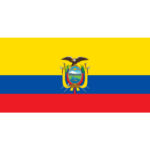

The President of the Republic issued Executive Decree No. 754, published on June 2, 2023 (hereinafter “ Decree ”). The Decree reformed the Regulations of the Organic Code of the Environment. One of the main reforms that the Decree implemented was the Citizen Participation Process for Environmental Consultation in the environmental regularization process.
On June 13, 2023, certain indigenous groups presented a public action of unconstitutionality, due to the form and substance of the Decree, indicating that: (i) a Law and not an Executive Decree is required to regulate these aspects; (ii) failure to carry out the pre-legislative consultation; (iii) the prior consultation is confused with the environmental consultation, requesting the suspension of the Decree while the case is resolved.
On July 31, 2023, the Constitutional Court heard the request within case 51-23-IN, in which it decided:
• Admit the public action of unconstitutionality to processing, without implying prejudgment.
• Accept the request for provisional suspension of the entire Decree while the Constitutional Court analyzes and resolves the public action of unconstitutionality.
What are the next steps to follow in response to the claim of unconstitutionality of the Decree?
The Presidency, the Ministry of the Environment, Water and Ecological Transition (hereinafter “ MAATE ”), and the State Attorney General’s Office may challenge or defend its constitutionality within 15 days. Likewise, the Presidency has 15 days to send to the Constitutional Court the support on which the Decree was based.
Companies that have already initiated the environmental consultation process under the Decree could present amicus curiae, to report their arguments to the Court.
Deadlines that the Constitutional Court has:
At the moment there is no specific term for the Constitutional Court to rule on the merits of the public action of unconstitutionality. In the meantime, the Decree will continue to be suspended.
Relevant information:
The MAATE indicated that more than 150 projects have been paused due to the lack of implementation of the environmental consultation.
Possible scenarios: Once the Constitutional Court analyzes the substance of the public action of unconstitutionality, there are 3 possible scenarios:
1. Scenario #1: The Decree is declared unconstitutional in its entirety.
| Effects | Legal path to follow |
| Until the National Assembly issues the new law, the MAATE will not be able to continue with the environmental regularization processes. The Court must rule on the regularization processes initiated before the declaration of unconstitutionality. | The National Assembly should issue an organic law that regulates the right to prior consultation and the right to environmental consultation.
If the Court so determines, the pre-legislative consultation must be carried out previously.
|
2. Scenario #2: The Decree is declared partially unconstitutional.
| Effects | Legal path to follow |
| The articles that the Constitutional Court determines are unconstitutional would be eliminated from the Decree, and the rest would remain in force. The Court must rule on the regularization processes initiated before the declaration of unconstitutionality.
Until the National Assembly issues the new law, MAATE will not be able to continue with the environmental licensing processes.
|
The reasoning of the Constitutional Court must be followed, which could include the National Assembly issuing an organic law that regulates those issues that are declared unconstitutional. In turn, a pre-legislative consultation be carried out.
|
3. Scenario #3: the content of the Decree is declared to be constitutional.
| Effects |
| The provisional suspension of the entire Decree is lifted and the environmental consultation processes are resumed. The conditional constitutionality of the Decree could also be declared, and it must be applied in the manner indicated by the Constitutional Court. |
For more information contact:
Maria Rosa Fabara | Partner Bustamante Fabara | mrfabara@bustamantefabara.com





